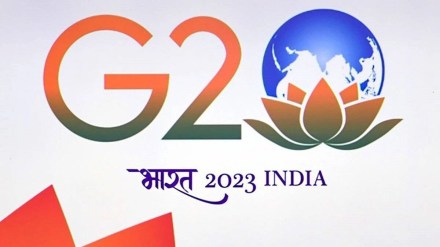Strengthening multilateral development banks to address global challenges, financing for urban infrastructure and leveraging digital public infrastructure for financial inclusion would be key focus areas for the first G20 Finance Ministers and Central Bank Governors (FMCBG) meeting under the G20 Indian Presidency on February 24-25 at Bengaluru.
The sessions will also cover issues related to the global economy, global health, and international taxation.
On February 9, finance minister Nirmala Sitharaman and International Monetary Fund managing director Kristalina Georgieva discussed the timely completion of the 16th General Review of Quotas (GRQ) to strengthen the Global Financial Safety Net. The GRQ by December 2023 is expected to address the long-delayed realignment of IMF members’ quota shares, which was last undertaken in 2008, to increase the voice of the emerging market and developing economies such as India.
The G20 FMCBG meeting will be preceded by a meeting of G20 Finance and Central Bank Deputies (FCBD) on February 22, 2023, co-chaired by economic affairs secretary Ajay Seth and the Reserve Bank of India deputy governor Michael D. Patra, the finance ministry said in a statement.
The discussions in the G20 FMCBG meeting are intended to provide a clear mandate for the various workstreams of the G20 Finance Track in 2023.
On the sidelines of these meetings, several side events have been planned for the visiting Ministers, Governors, Deputies and other delegates, on subjects such as Digital Public Infrastructure, Policy Perspectives on Crypto Assets and the role of National Payment Systems in Cross Border Payments.
The 1st G20 FMCBG meeting under the G20 Indian Presidency will see the participation of Finance Ministers and Central Bank Governors of the G20 members, invitee members and heads of International Organisations. In total, there will be 72 delegations attending the meeting.
Debt vulnerabilities of countries would be another key agenda of the G20 FMCBG meeting.
The Common Framework is intended to deal with insolvency and protracted liquidity problems, along with the implementation of an IMF-supported reform programme in debt-stressed countries. G20 official creditors—both traditional “Paris Club” creditors, such as France and the United States, and new creditors, such as China and India, which overtook the Paris Club as lenders in the last decade—agreed to coordinate to provide debt relief consistent with the debtor’s capacity to pay and maintain essential spending needs. The Common Framework requires private creditors to participate on comparable terms to overcome collective action challenges and ensure fair burden sharing.
